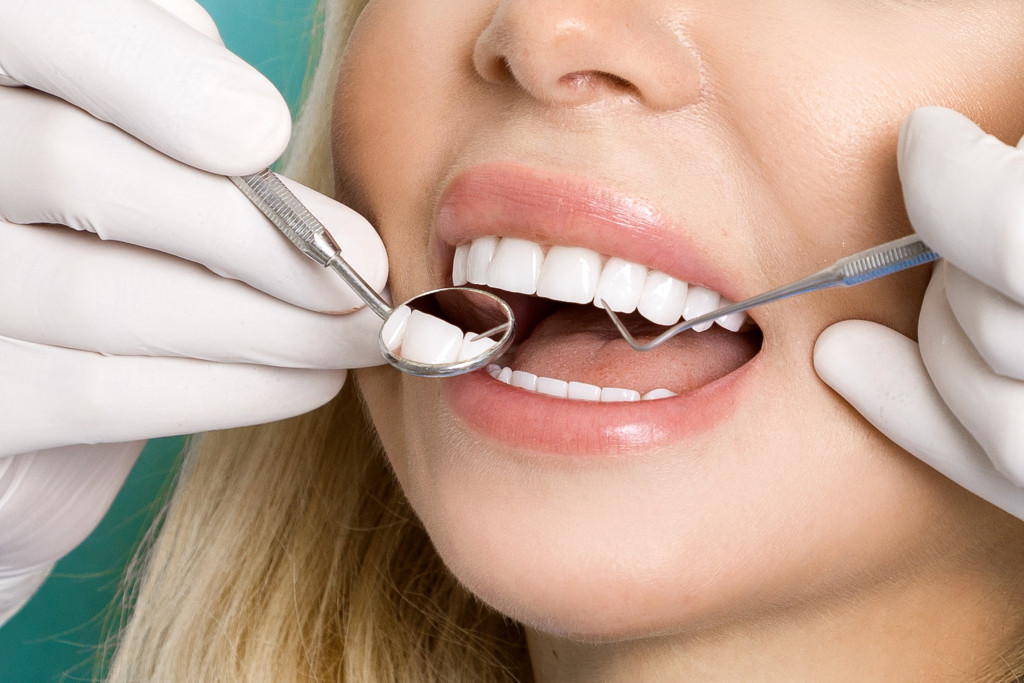- Bruxism is a condition characterized by teeth grinding or clenching, usually during sleep, and can cause pain and damage to the teeth.
- Symptoms of Bruxism include chronic jaw pain, headaches, earaches, facial pain, and tightness in the facial muscles.
- Risk factors for bruxism include stress and anxiety, sleep disorders, and certain medications.
- Dealing with bruxism involves dealing with tooth loss, reducing stress levels through relaxation techniques, and more.
- Lastly, it’s good to have a mouth guard to prevent teeth from grinding during sleep.
Bruxism is a condition that involves excessive teeth grinding and clenching, usually during sleep. It can be a serious medical condition, as it can cause pain and damage to the teeth. So, what is bruxism? How do you know if you have it? And how do you treat it? Here’s a look at the nature of Bruxism and how to treat it.
What is Bruxism?
Bruxism is characterized by teeth grinding or clenching, which usually happens during sleep. The amount of force used in grinding or clenching can vary from mild to severe, but either way, it can lead to significant wear and tear on the teeth. It’s important to note that bruxism isn’t just an occasional thing; it typically occurs every night over an extended period of time.
Symptoms of Bruxism
The most common symptom of bruxism is chronic jaw pain or soreness around the jaw area. Additionally, people who suffer from bruxism may also experience headaches, earaches, facial pain, tenderness around the jaw joint area, and tightness in the facial muscles. If left untreated for too long, bruxism can lead to more severe issues, such as cracked or broken teeth and tooth loss due to erosion caused by excessive grinding and clenching.
Risk Factors
There are various reasons why people develop bruxism. Here are some risk factors surrounding the disorder.

Stress and Anxiety
One of the primary risk factors for bruxism is stress and anxiety. When people are under a lot of stress or feeling anxious about something, they often clench their jaw or grind their teeth without even realizing it.
This behavior can be particularly pronounced in children dealing with a stressful situations at school or home. In some cases, simply reducing stress levels can help reduce the frequency of teeth-grinding episodes.
Sleep Disorders
Another significant risk factor for bruxism is sleep disorders such as insomnia and sleep apnea. People with these conditions often have difficulty getting enough restful sleep, which can lead to an increase in teeth grinding during the night. If you think you may have a sleep disorder, it’s essential to get evaluated by your doctor so that you can receive proper treatment.
Medication Use
Certain medications have been linked to an increased chance of developing bruxism. These medications include antidepressants and antipsychotics, commonly prescribed for mental health conditions such as depression and anxiety. If you’re taking any type of medication that could potentially cause teeth grinding, talk to your doctor about alternatives or other treatments that can help mitigate this side effect.

Dealing With Bruxism
Thankfully, there are various ways to deal with bruxism. Here are some of those ways:
Deal With Tooth Loss
First, you must deal with any tooth loss you’ve had due to this disorder. Tooth loss can be addressed with a robust tooth replacement. This replacement is made with titanium implants surgically placed into the jaw bone. These implants replace lost teeth and help maintain the stability of your jaw.
Stress Reducing Techniques
It’s essential to reduce stress levels as much as possible, as this can help limit bruxism episodes. A few helpful tips include relaxation techniques like mindfulness or progressive muscle relaxation. Additionally, regular exercise and a healthy diet can help reduce stress levels.
Behavioral Therapy
In some cases, behavioral therapy can teach people how to relax their jaw muscles and prevent teeth from grinding during sleep. This therapy is usually conducted by a specialized therapist or psychologist who treats bruxism.
Mouth Guards
If you suspect that you may be grinding your teeth during sleep, a mouth guard can be a good solution. A mouth guard (sometimes called a night guard) is a device that fits over your upper or lower teeth to protect them from the effects of teeth grinding. You can purchase a mouth guard at your local drugstore or get one custom-made by your dentist.
Overall, bruxism is a serious medical condition that can lead to long-term damage if not treated properly. If you think you may have bruxism, it’s vital to get evaluated by your doctor or dentist so that you can receive the appropriate treatment.

